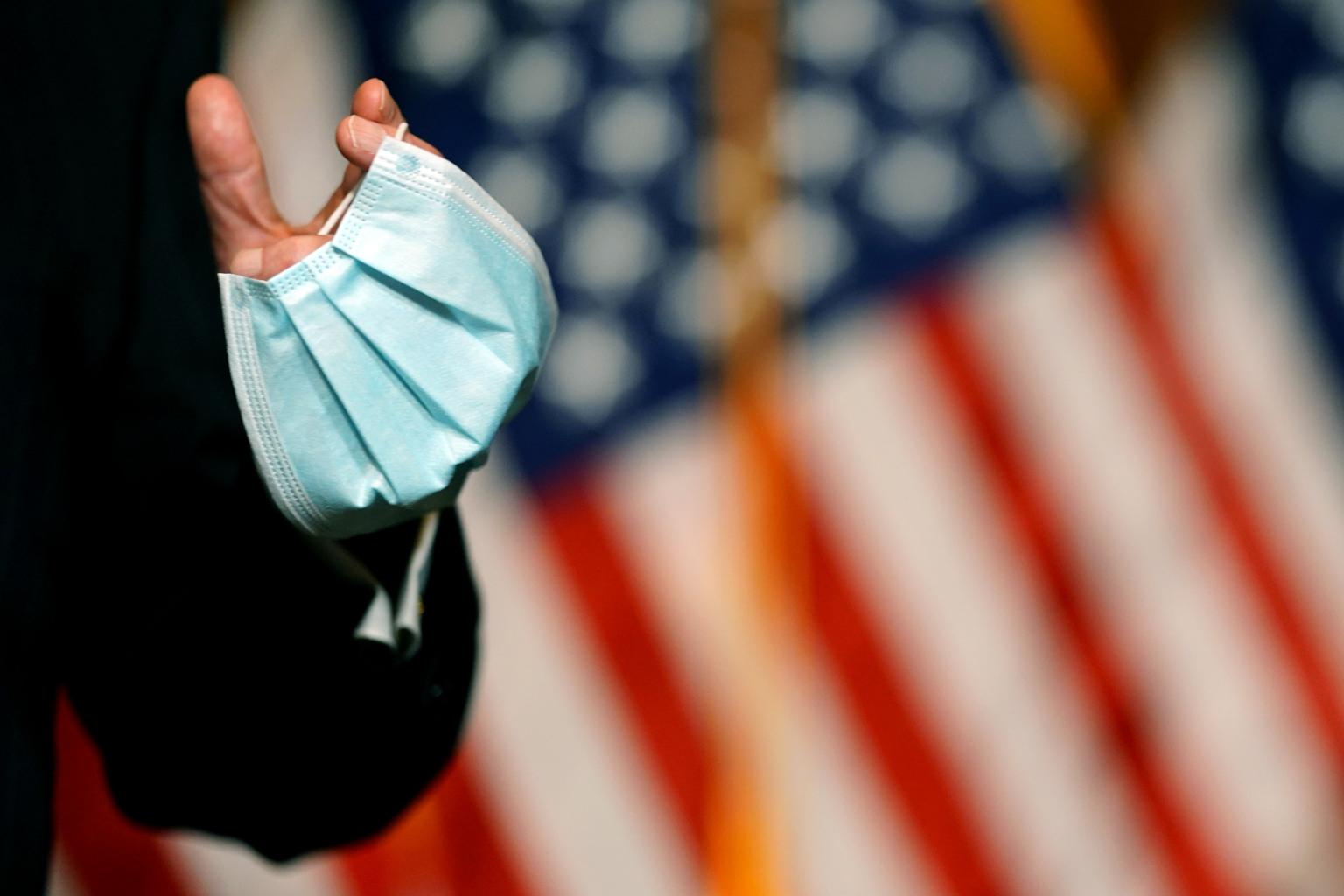20 words & phrases that defined 2020: Covidiot
2020 has been a year of upheaval and crisis – one that was shaped by the coronavirus pandemic. It also saw significant developments, such as a general election in Singapore and the United States electing its next leader. In this 12-day series, The Straits Times spotlights 20 words or phrases that defined 2020.
Sign up now: Get ST's newsletters delivered to your inbox

America has proved particularly fertile ground for the spread of covidiocy.
PHOTO: REUTERS
WASHINGTON - Her four-year-old daughter had tested positive for Covid-19 but the rest of the household had tested negative, a week before they were due to depart on their long-awaited holiday to Disney World in Orlando, Florida, the netizen wrote on Facebook.
"I am so devastated over the idea of cancelling this trip," she wrote in the Disney World Junkies Facebook group last week. "It was my four-year-old and six-year-old's entire Christmas present, without it we have nothing really to give them Christmas morning."
The mother went on to write that the family did not have any symptoms and had been told that they "should be ok to go" ahead with their trip, while others told them to stay home.
"I am unbelievably stressed and heartbroken over the whole situation! And I just have no idea what to do," she said in the post that went viral after it was shared on Twitter, where netizens lambasted her for lacking a sense of perspective.
In 2020, public shamers found a new word to describe such individuals who act selfishly and put others at risk of catching the coronavirus: Covidiot.
A portmanteau of Covid-19 and idiot, a covidiot is "a slang insult for someone who disregards health and safety guidelines about the novel coronavirus", according to an article on Dictionary.com
Throughout the year, many examples of "covidiocy" have gone viral. Everyday instances included people pulling down their masks to cough or sneeze, shoppers in supermarkets and malls arguing about having to wear face coverings, and people selling masks made out of mesh or lace that obviously do nothing to stop the spread of droplets.
In another instance from the Labour Day weekend in September, an Ohio policeman found several college students hanging out on a front porch unmasked, and warned them they were breaking pandemic rules by having 20 people - twice the local limit - at the gathering.
Upon running the identification card of one student, the policeman learnt that he had tested positive for Covid-19 a week ago.
"Are you supposed to be quarantining? You have other people here and you're positive for Covid?" the officer asked, according to footage from his body camera.
Everyone at the party had the coronavirus, the student replied, but later said two.
Such instances were far from isolated across America, where colleges reopened in fall. Students from the University of Michigan even created an Instagram account - "umich_covidiots" - where other users could share horror stories of house parties, unmasked crowds and devil-may-care dorm mates.
While examples of covidiocy abound throughout the world, America has proved particularly fertile ground for the spread of such behaviour, to devastating effect. To date, 18.6 million in America have tested positive for Covid-19, and more than 330,000 have died from it.
The system of federal government means that across the patchwork of 50 states and Washington, DC, local officials are the ones who draw up pandemic rules and public health and safety guidelines.
But there is limited widespread enforcement of coronavirus rules, with many politicians reluctant to make those rules in the first place, arguing that the rights of individuals mean that communities should police themselves rather than be dictated to from on high.
Compounding this are fringe groups of anti-mask protesters and netizens - and even public figures and politicians - who spread misinformation about science and facts, fuelling doubt about mask requirements and crowd restrictions.
Neither are Americans helped by a patchwork of often contradictory public health and safety guidelines, as leaders attempt to balance the survival of businesses with gathering limits to curb the spread of the virus.
For instance in Los Angeles, restaurant owners have protested against a ban on outdoor dining, arguing that such a ban is illogical while catering stations for film crews are allowed to operate.
America has also gone for so long without flattening the curve that quarantine fatigue has set in, with people letting their guard down out of fatalism.
Nonetheless, public shaming of Covidiots, while cathartic, may not be productive, argued Harvard Medical School epidemiologist Julia Marcus in an essay for The Atlantic in May.
Making the case against an all-or-nothing approach to risk prevention, Prof Marcus argued instead for a harm-reduction model which recognises that some people would take risks anyway, and offers them ways to reduce those risks.
"The anger behind shaming is understandable," she wrote. "But, as years of research on HIV prevention have shown, shaming doesn't eliminate risky behaviour - it just drives it underground."
She added: "Trying to shame people into 100 per cent risk reduction will be counterproductive. What Americans need now is a manual on how to have a life in a pandemic."


